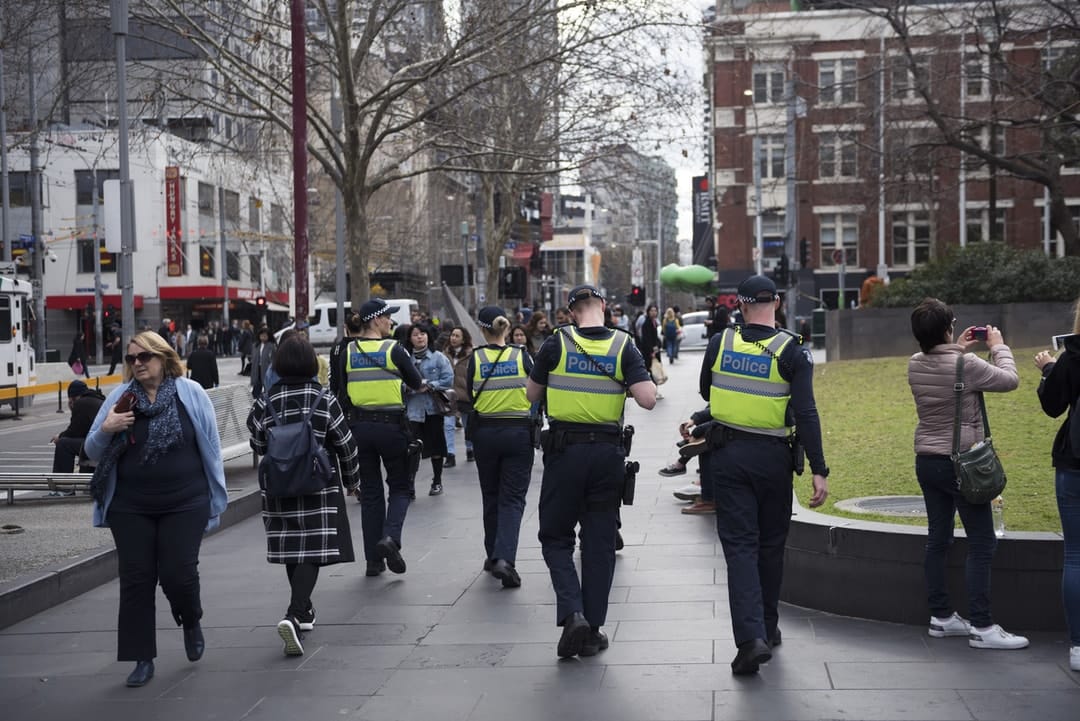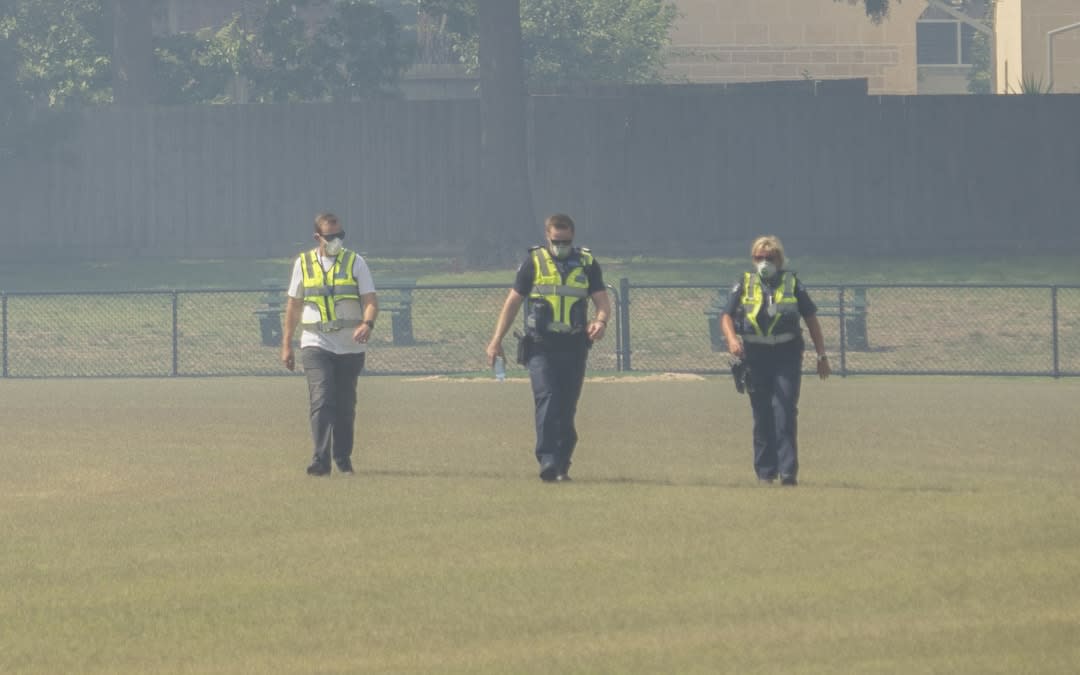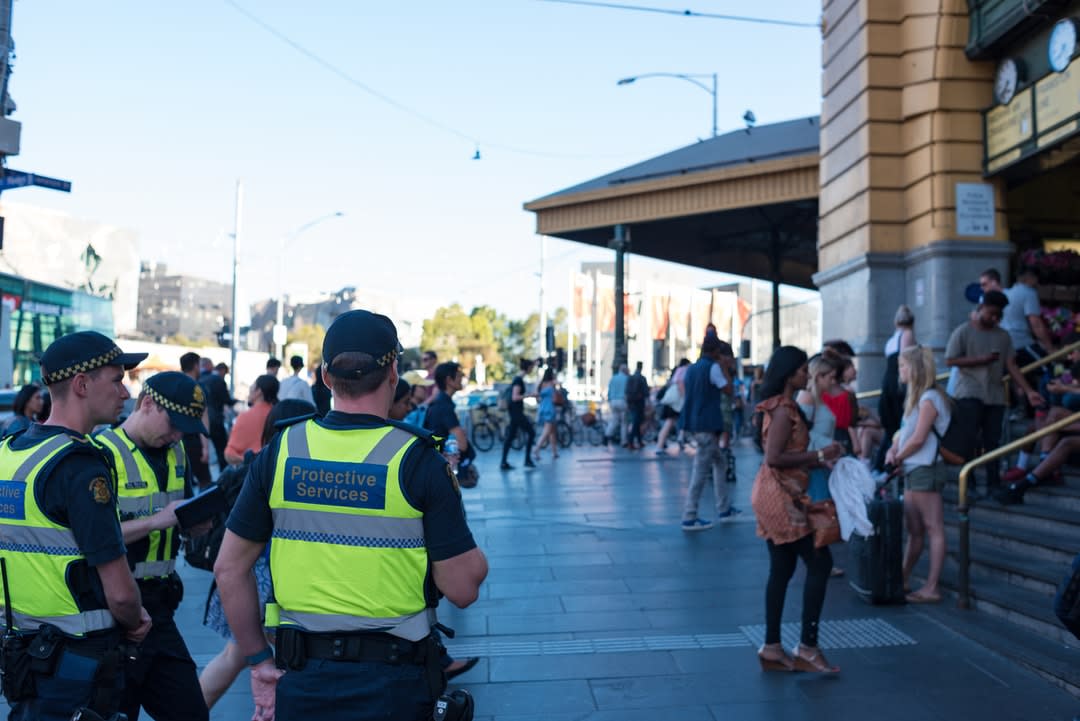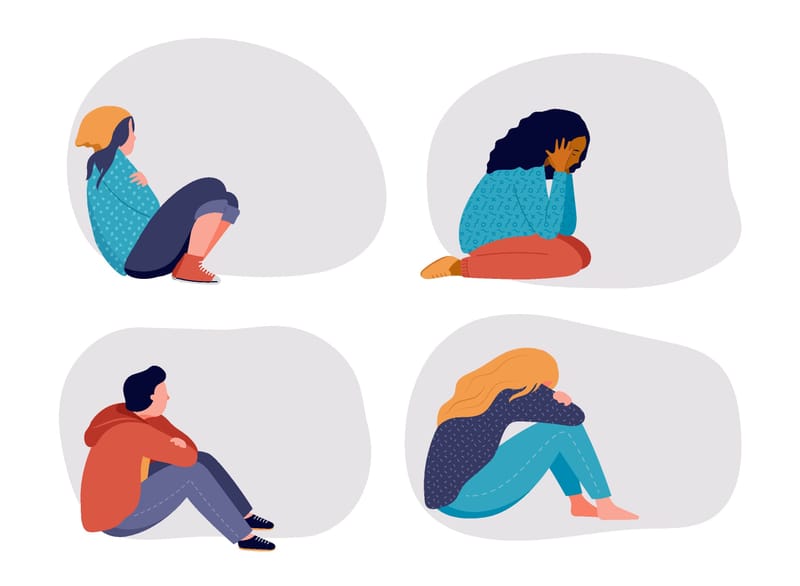
The power of authorities to enforce COVID restrictions is once again in the news as the Victorian Parliament is considering new laws that would permit detention of those deemed likely to breach self-isolation orders.
The new bill – the COVID-19 Omnibus (Emergency Measures) and Other Acts Amendment Bill 2020 – seeks to insert additional detention powers into the Victoria Public Health and Wellbeing Act that would allow a "designated authorised officer" to detain high-risk persons who are "likely" to refuse or fail to comply with a public health direction. Such high-risk persons are those diagnosed with COVID-19, or a close contact of such a person.
Police, let alone the lesser-trained PSOs or security guards, are not appropriate people to be predicting who is unlikely to comply with health orders, who should be detained, and then policing their own decisions.
The bill is controversial for two main reasons.
First, detention is normally ordered by a court and is based on what a person has done in the past. Here the detention will be by a governmental official based on what the person is likely to do in the future. We call this "preventative detention", and it's problematic for a number of reasons.
Second, the Bill would allow designation of "authorised officers" to include police and protective service officers (PSOs) rather than health officials and other public servants. The use of PSOs in this context is controversial given that they have, to date, been primarily used for security at train stations. Their use for COVID-19-related detention is highly unusual.
I discuss my detailed concerns with the bill below. But before I do so, it's important to note two things:
The current status of the bill
It's not yet clear if the bill will be passed in its current form. It was passed by the Legislative Assembly last week, and is due to be debated in the Legislative Council in October.
It's likely to be the subject of significant debate when it comes before Parliament again next month, as it's raised some concerns in a number of quarters – both within and outside of Parliament.
COVID-19 may be creating a "new normal", but preventative detention should not necessarily be a part of our legal response to that, at least unless it can be demonstrated that this is necessary and proportionate to the public health compliance evidence.
Currently, the Opposition and Greens are opposing the bill, and the government will need to rely on cross-bench support to get it passed. Outside Parliament, the Bar Council of Victoria and Liberty Victoria have each released statements expressing their concern at aspects of the proposed provisions. I largely agree with those concerns.
Adopting a rule of law framework
As we're now well-advanced into the COVID "new normal", I believe it's an opportune time to take pause and reflect on how our laws are being passed, and the state of public debate on those laws. And against that background, I think it's important to revert to fundamental legal principles about the proper remit of government action, legitimacy and accountability. Such foundational values can be found in what is called "the rule of law". This principle provides that the law must:
- be certain and clear;
- should be applied to all people equally and accord with human rights standards; and
- that actions by government should be authorised by law.
Reference to these foundational principles of law may also provide a useful way to ensure that the debate about COVID restrictions does not become overly-politicised. I raise this because some of the commentary about the current Omnibus Bill has been unwarranted and ill-judged. For instance, this week, Daily Mail Australia suggested that Victorian Premier Daniel Andrews is using the bill to create a "terrifying police state". In a similar vein, a representative of the Institute of Public Affairs told that same newspaper that:
'Not since East Germany have we seen such a monstrous web of government surveillance. The Victorian Parliament must vote down this bill and say no to the Dan Andrews Stasi."
What the community needs now is debate that is informed, nuanced and measured. Parallels to a totalitarian regime are inaccurate and unhelpful, and certain members of the media should bear that in mind.
I now turn to address the legal concerns with the Omnibus Bill.
1. Preventative detention for those ‘likely’ to breach a COVID direction
Permitting government authorities to detain persons based on a belief about their likely future behaviour is problematic in terms of rule of law principles. In particular, there are the following issues:
- The basis for the detention is an authorised officer’s reasonable belief about a person’s likely conduct – this is open-ended, subjective, and means that the power could be open to arbitrary use.
- There is no upper limit set on the period of detention. This is not in accordance with rule of law principles about legal certainty. Preventative detention orders used elsewhere in Australia do have such set limits (for instance, in the anti-terrorism context, preventative detention limits are set at 48 hours to 14 days, depending on the jurisdiction).
- There is currently no statutory appeal mechanism in the bill to allow affected persons to challenge the detention order. Although affected persons could seek judicial review by application to the Victorian Supreme Court, this would require legal representation and would be costly. Therefore, it would be preferable if an appeal right was explicitly stated in the legislation, and a more accessible avenue of review was provided. Other provisions of the Public Health and Wellbeing Act allow persons to appeal to the Victorian Civil and Administrative Appeals Tribunal, and such an appeal mechanism would be useful here to permit judicial oversight of the detention orders.
In addition to the above concerns, it's important to note the risk associated with failing to put proper limits on powers of detention. Without proper limits put into the law, the provisions may lead to what is known as "arbitrary detention" which would be against international human rights law and the Victorian Charter of Human Rights. It may also risk a later claim for compensation if the detention is found by a court to be unlawful.

I acknowledge that several counter-arguments may be raised in relation to my concerns.
It may be argued that these laws will only be used in exceptional circumstances and would be subject to controls. While that may be the case, it's important to assess the law as it is stated and consider all possible contingencies, including the fact that powers may be misused or misunderstood by those empowered to enforce those laws.
It may also be argued that use of preventative detention orders are justified because of the nature of COVID-19. That is, those who refuse to abide by self-isolation orders or who are deemed to lack the capacity to so abide pose a risk to public health.
However, this must be weighed against the nature of detention, which is a serious restriction on individual liberty. The right to liberty is protected under the Victorian Charter of Human Rights, as well as being a long-standing principle of judge-made law.
Any proposed amendments that give additional power to the police or other officers to detain persons for public health reasons would therefore need to be clearly justified as a necessary, reasonable and proportionate response to the public health imperatives. It would also need to be established that reasonable alternatives to preventative detention that may achieve the same aim have been considered by lawmakers.
2. The use of PSOs and others
A related concern with the Omnibus Bill is the possibility that the amendments will lead to deployment of protective services officers (PSOs) and others to carry out these detention orders. A PSO is a sworn officer of Victoria Police who is granted some of the powers and functions of a constable when on duty in a "designated place".

Victoria has used PSOs since 2011, but these have been employed to patrol metropolitan and major regional railway stations. They don't have the same training as police, and may not be sufficiently skilled to deal with the complex and sensitive caseload presented by COVID.
I mention this because government information about the use of the new detention orders suggests that these orders may be applied to vulnerable people, such as those with disability or mental illness (who may be deemed to find it difficult to adhere to directions such as self-isolation). The use of transit PSOs to order detention those with such vulnerabilities would be problematic, in my opinion.
This was also a concern raised by Dr Tim Read, the Greens member for Brunswick, in the debate over the Omnibus Bill on 18 September, who emphasised that "we need people with skills in public health and an engagement with vulnerable groups and social services leading the response to this crisis. We want a health-focused approach to a health crisis."
Dr Read noted in particular that: "Police, let alone the lesser-trained PSOs or security guards, are not appropriate people to be predicting who is unlikely to comply with health orders, who should be detained, and then policing their own decisions."
The legal response to the 'new normal' must be measured
COVID-19 may be creating a "new normal", but preventative detention should not necessarily be a part of our legal response to that – at least unless it can be demonstrated that this is necessary and proportionate to the public health compliance evidence.
Giving authorised officers – those who are not part of the judiciary – the power to detain individuals for preventative reasons raises concerns for the rule of law and human rights principles.
Therefore, it's hoped that the Victorian Parliament considers this new bill carefully. It should seek to limit arbitrariness, introduce robust limitations and oversight mechanisms, and thereby ensure that foundational principles of good law are instituted into legislation in the "new normal".





